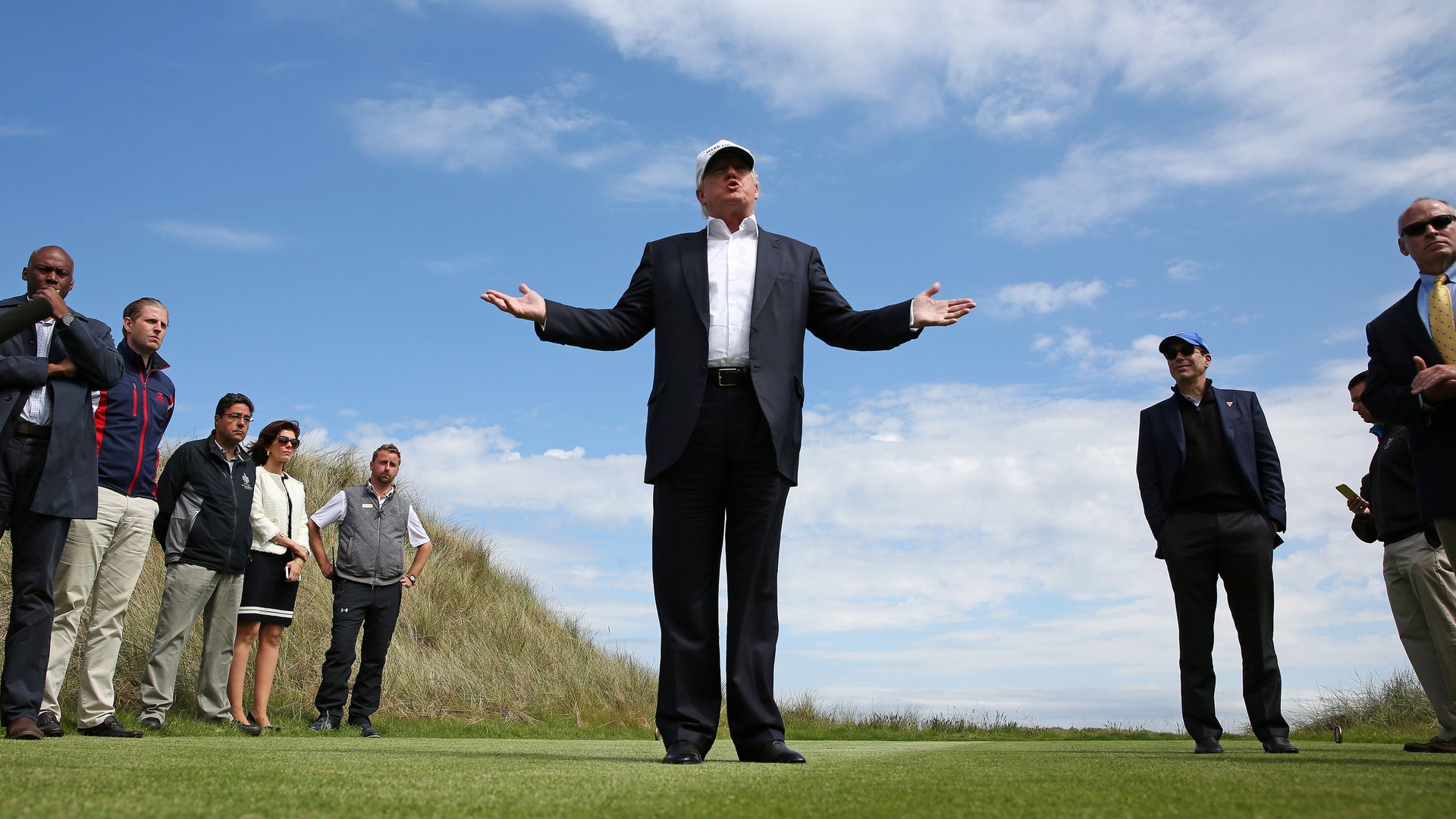Donald Trump’s defining business philosophy at the presidential debate was naked greed
I wrote during the presidential debate last night of Donald Trump’s bragging about not paying taxes and taking advantage of bankruptcy laws. His comments struck me as surprisingly unapologetic to Americans who do pay federal taxes and do pay back money when they borrow it. And they’re in stark contrast to the tone in 2012, when Republican candidate Mitt Romney took heat for exploiting tax laws to pay relatively little to the government.


I wrote during the presidential debate last night of Donald Trump’s bragging about not paying taxes and taking advantage of bankruptcy laws. His comments struck me as surprisingly unapologetic to Americans who do pay federal taxes and do pay back money when they borrow it. And they’re in stark contrast to the tone in 2012, when Republican candidate Mitt Romney took heat for exploiting tax laws to pay relatively little to the government.
Trump has certainly changed the rules of campaigning, and the tenor of the electorate has shifted as well. But since last night I’ve been distracted by Trump’s remarks, because he revealed something essential about himself: a business philosophy that’s apparently little more than naked greed.
Trump has clearly crossed a line for American CEOs, who traditionally would have flocked to support an entrepreneur campaigning for the White House, particularly against a Clinton vowing to tax the wealthy. The Wall Street Journal reported that zero chief executives of Fortune 100 companies donated to Trump’s campaign, compared to nearly one-third who supported Romney in 2012.
I think his naked greed is big reason for that. The best CEOs don’t derive professional pride from exploiting any possible loophole or avoiding paying their fair share of taxes. (That doesn’t mean they won’t do it—and hope that Europe’s regulators don’t slap them with a big fine.) But at least publicly, they play the long game, one where accomplishments are measured by economic growth, jobs created, satisfied customers and business partners, and yes, personal wealth.
(Trump’s racist, xenophobic, and sexist comments are surely also reasons why CEOs have distanced themselves. “To vote Republican out of party loyalty alone would be to endorse a candidacy that I believe has exploited anger, grievance, xenophobia, and racial division,” Hewlett Packard Enterprise CEO Meg Whitman wrote last month. “Donald Trump’s demagoguery has undermined the fabric of our national character.”)
Of his profiteering during the 2008 housing crisis that cost millions of Americans their homes, Trump last night glibly said, “That’s called business, by the way.” He said he had income of $694 million last year. He said his company was “worth many, many billions of dollars with some of the greatest assets in the world.” Yet he said not paying federal income taxes “makes me smart.”
When Trump complained about federal debt and failing US infrastructure, Hillary Clinton noted that his not paying federal income tax might have contributed to those problems.
Trump’s claimed qualification for being president is that his experience as a businessman makes him a master negotiator and deal closer. But what we saw last night was something very different: a greedy man. And it’s no wonder few American business leaders are comfortable with that.